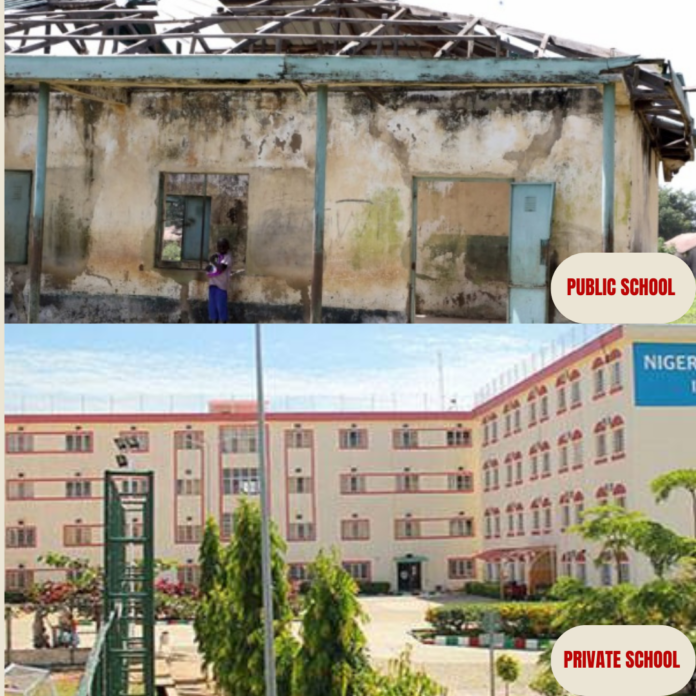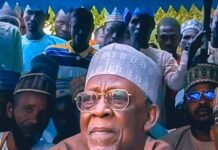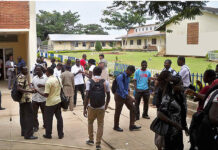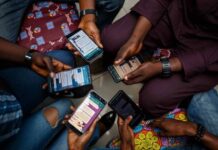Forgotten Schools: How neglect, inequality are stealing Nigeria’s future, by Abubakar Kado
Abuja, the gleaming capital of Nigeria, is a city of contrasts. While it boasts modern skyscrapers, lush boulevards, and elite private schools, its public education system lies in shambles. For thousands of children in underserved communities, the dream of quality education has been replaced by the grim reality of broken classrooms, absent resources, and unfulfilled government promises. A recent SaharaReporters investigation exposes the alarming decay of public schools in the Federal Capital Territory (FCT), laying bare a system on the brink of collapse.
READ ALSO: Wike commits to ongoing Abuja demolitions amid protests
Pagada 1 Community School: Learning Beneath the Sky
In the remote community of Pagada 1, Gwagwalada Area Council, education takes place under trees. The collapse of the school’s infrastructure has forced students from Primary 2 to 6 into a single overcrowded classroom. There are no roofs, no desks, and no learning materials just shattered dreams.
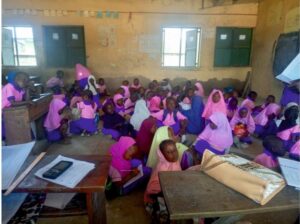
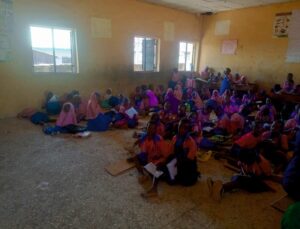
With nowhere else to go, many children have abandoned their studies altogether. They now roam the village or toil on farms, their futures seemingly written in dust.
“We resume under trees every day,” said the assistant headmaster with a tone of despair. Despite the dedication of the 24 teachers in the school, the challenges are overwhelming. Pleas for government intervention have fallen on deaf ears, leaving the community to shoulder the burden of neglect.
Dei-Dei School: From a Place of Learning to a Den of Criminals
In Dei-Dei, one of Abuja’s bustling commercial hubs, the story of LEA Primary School is a tragedy of abandonment. Meant to serve eight neighbouring communities, the school now symbolises neglect and insecurity. Its buildings are crumbling, furniture is non-existent, and a missing perimeter fence has turned the grounds into a haven for criminals.
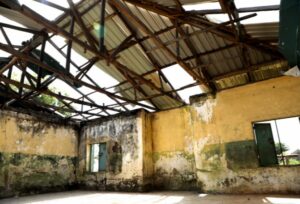
“Parts of the school have been converted into public toilets,” a staff member shared anonymously. Criminals use the premises for illicit activities, and classrooms are vandalised with impunity. Many students, afraid of harassment, have stopped attending altogether, while others sit on bare floors in overcrowded rooms, their hope fading with each passing day.
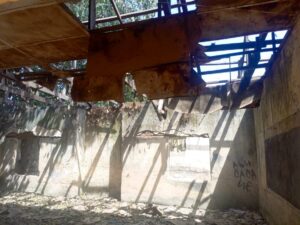
Ledi II: Where Rain Drowns Education
At Ledi II, another public school in the FCT, the situation is equally heartbreaking. Classrooms with gaping roofs and broken walls cannot shield pupils from rain. Whenever the heavens open, lessons grind to a halt.
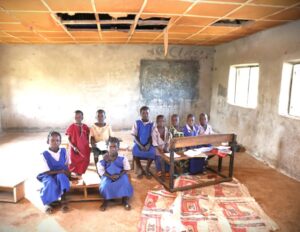
With no desks, chairs, or instructional materials, learning has become a painful ordeal for both students and teachers. Parents and community leaders have repeatedly called for help, but their voices echo in the void of government inaction.
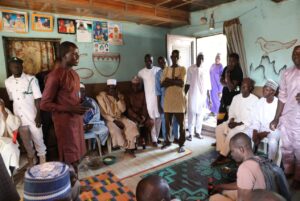
Two Systems: Private Schools Soar While Public Schools Sink
While public schools languish in decay, private institutions like Loyola Jesuit College, The Centagon International School, and Nigerian Turkish International College in Abuja thrive. These schools boast modern facilities, expert teachers, and nurturing environments, offering an educational experience fit for the privileged.



But for the vast majority of Nigerians, such elite options are out of reach. The glaring inequality between private and public schools raises a crucial question: if private schools can achieve excellence, why can’t the government provide similar opportunities for all?
READ ALSO: Nigeria, the EPL and the Contradictions, by Hassan Gimba
High Cost of Neglect
Neglecting public education is a tragedy with long-term consequences. Children from low-income families, already burdened by poverty, are being denied their fundamental right to learn. This systemic failure perpetuates cycles of poverty, deepens inequality, and undermines Nigeria’s socio-economic future.
The Way Forward: A Call to Action
Reviving public education in Abuja requires bold and immediate action. The government must:
Rebuild Infrastructure: Repair classrooms, replace roofs, and provide desks, chairs, and teaching materials.
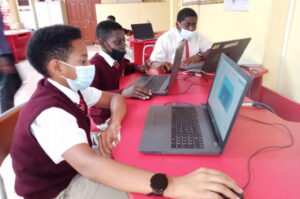
Secure Schools: Install perimeter fences, deploy security personnel, and make schools safe for learning.
Increase Funding: Prioritise education in the national budget, with strict transparency to ensure resources reach their intended targets.
Support Teachers: Offer better salaries, training, and working conditions to boost morale and performance.
Promote Equity: Implement policies that ensure every child, regardless of socio-economic status, has access to quality education.
Community participation is equally vital. Parents, activists, and stakeholders must hold leaders accountable, demanding an educational system that reflects the nation’s aspirations.
Education: A Right, Not a Privilege
The decay of public schools in Abuja paints a bleak picture of neglect, inequality, and missed opportunities. Education is the foundation upon which nations rise, and no country can achieve greatness while abandoning its children to a broken system.
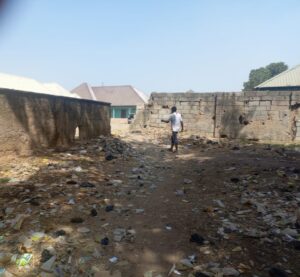
The future of Nigeria hinges on the education of its youth. Every child deserves a chance to learn in an environment that nurtures their potential and equips them to contribute meaningfully to society. It’s time for the government to stop making empty promises and start delivering results.
Let this be a turning point, a moment where leaders, communities, and citizens unite to rebuild public education and restore hope for the next generation. Abuja’s children deserve better, and the time to act is now. By addressing this crisis head-on, Nigeria can chart a new course, one where every child’s dream is given the chance to soar.
Follow the Neptune Prime channel on WhatsApp:
Do you have breaking news, interview request, opinion, suggestion, or want your event covered? Email us at neptuneprime2233@gmail.com

